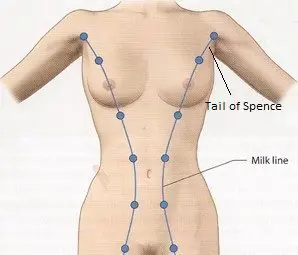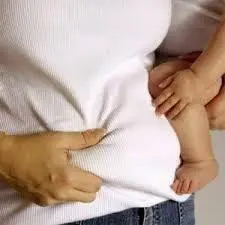With my fourth pregnancy I gained a whopping 43 lbs. So naturally, once I’d had that wee lass, I was itching to get started with my postpartum weight loss. However, as most new moms know, what you can do in those early weeks safely in a medical sense is pretty limited. I did find a few easy lifestyle changes that were perfectly safe immediately after pregnancy though. Then, thinking about it, I realized I have a parenting website, other moms would likely be interested in what did and didn’t work for me to lose those 43 lbs. I decided to document my weight loss journey from start to finish here on Life with Gremlins with reviews of products I tried, tips, and other fun stuff I learned along the way. So, here it begins, what I did in this first two weeks to lose weight after pregnancy.
Breastfeeding:
Pretty much everyone recommends breastfeeding, but what they don’t tell you is how freakin painful that first week can be. Between engorgement and sore nipples, I can see how lots of women call it quits, but if you needed one more reason to hang in there (it does get easier for most of us), how about sitting on your butt while losing weight? For realsies even, no advertising gimmick? Well, making a single oz of breast milk burns about 20 calories and your average newborn eats around 30 oz a day equating to roughly 600 calories burned every single day. To put that in perspective, running a 10-minute mile burns about the same calories—so just feeding your baby is like running a mile a day, minus the muscle tone and cardiovascular benefits of course.
Hydrate:
Next, I drank ungodly amounts of water. I hung on to that nifty hospital water jug and drank a minimum of three of them a day (which since the jug has measurements marked on it, I knew to be 90 oz.) Proper hydration not only helps you produce all that calorie-killing breast milk, but water does actually help you lose weight. How?
Water actually works in a few ways to aid in weight loss. First, dehydration will slow your metabolism, because nearly all body functions require water—that’s why our body is 70% water in the first place. Proper hydration also keeps your digestive system functioning tip-top to avoid constipation. Next, many people confuse thirst with hunger. A study in 2010 by Virginia Tech found that consuming water before meals helps you eat less—about 75 calories less per meal, which adds up quickly when you consider three meals a day (225 calories! remember how many calories running a mile burns?). Finally, another study in 2003 by the Franz-Volhard Clinical Research Center in Berlin found that drinking cold water actually burns calories in itself despite water having no calories. In their study they estimated increasing your water intake 50 oz. a day (a cup is 8 oz) would equate to 5 lbs. of weight loss a year. So, drink up.
Fiber:
The last thing I did to help aid in weight loss after pregnancy was purchase myself a big container of water-soluble fiber off Amazon and added 2 tsp to each of those water jugs I drank. Fiber not only helps keep your poo soft and prevent constipation—which can literally be a pain if you’ve just had a baby—but it also helps you lose weight. Fiber helps the body maintain more stable blood sugar levels and more effectively eliminate fat rather than storing it.
Just by breastfeeding and drinking three 30 oz. jugs of water with fiber powder I went from 175 lbs to 151 in two weeks. Granted, some of that weight was likely from my 7.9 oz. baby, blood loss, and the placenta, but because I had preeclampsia, I couldn’t tell you how much. I actually weighed 1 oz more the day after my labor than I did when I went into labor from fluid retention. I can say I lost 3 inches off my just-got-home-from-the-hospital waist measurement in that two weeks with the 24 lbs.
I’d be happy to hear any tips other moms may have on losing weight after pregnancy as well, so don’t be afraid to drop us a comment.




